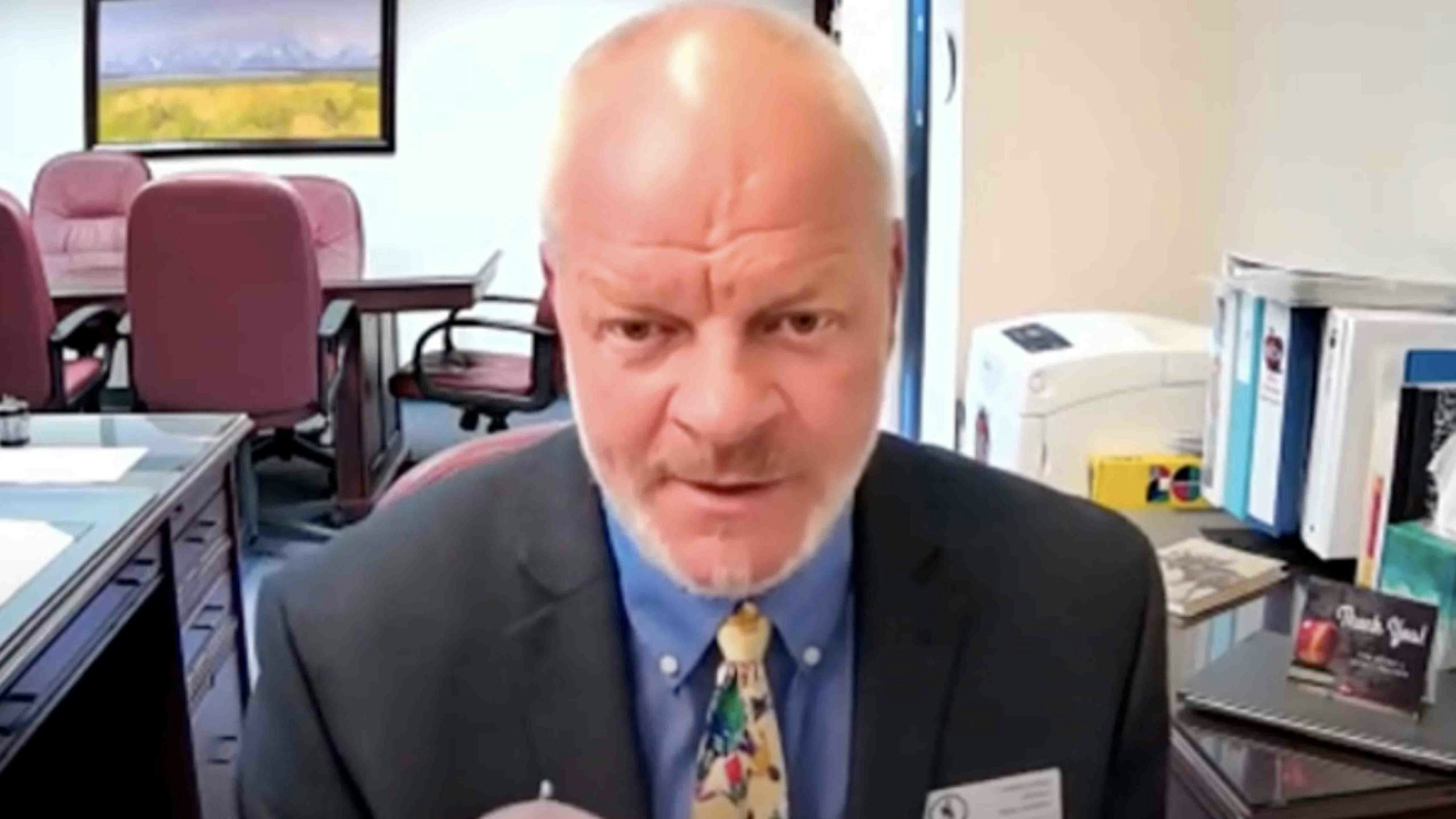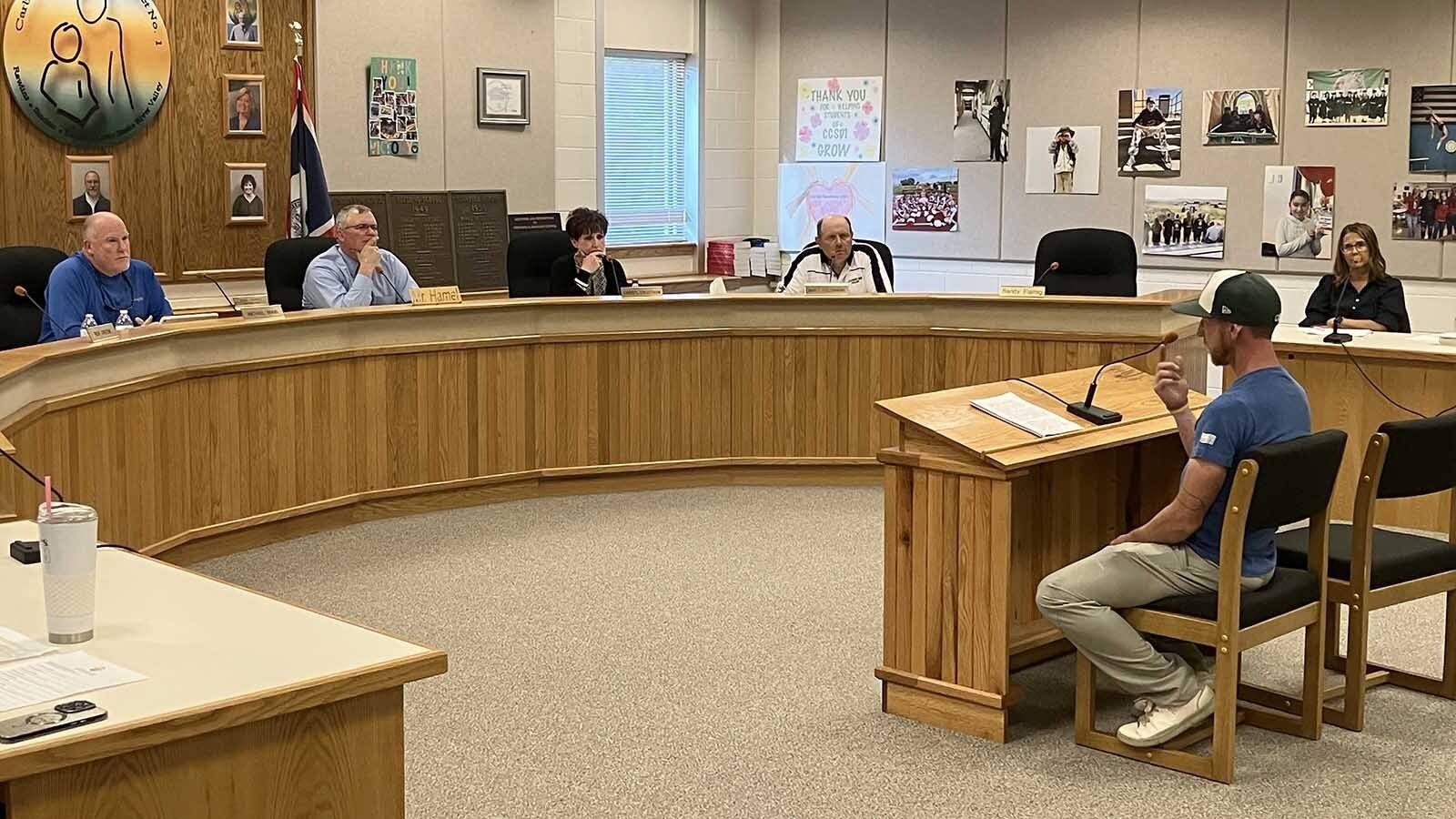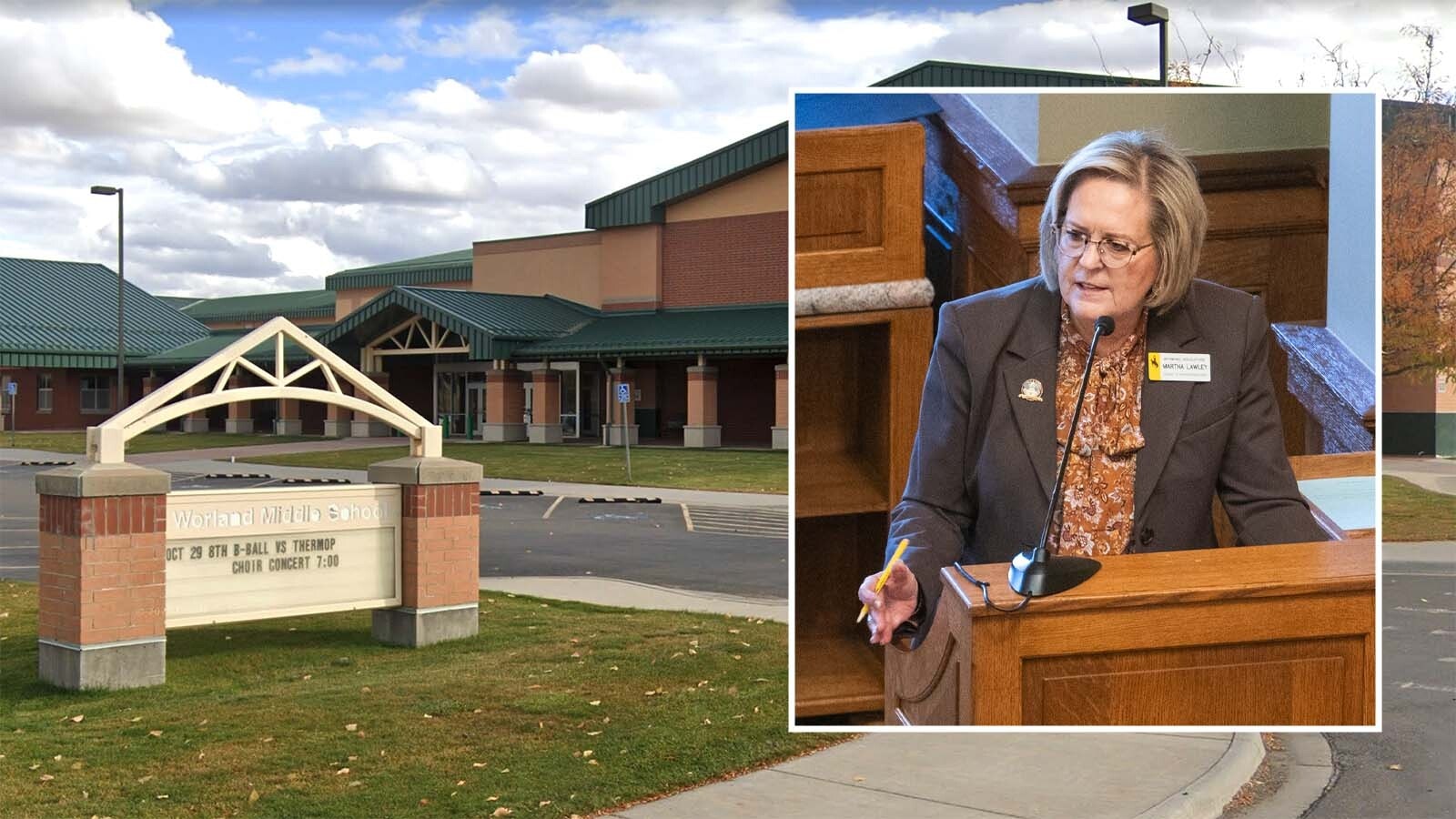The Wyoming Education Association expressed concern this week about the potential consequences of a recently proposed bill regarding critical race theory.
“The Wyoming Education Association supports transparency in education, which is at the core of this proposed legislation,” President Grady Hutcherson said in a written statement to the Gillette News Record. “WEA welcomes parents and communities in their right to be collaborative partners in students’ education.
“However, we do have concerns about the potential unintended consequences this draft legislation could have for education employees, districts, and — most importantly — students,” he said.
WEA spokeswoman Amanda Turner did not return Cowboy State Daily’s requests for comment on Tuesday.
Last week, Sen. Ogden Driskill, R-Devils Tower, was joined by Senate President Dan Dockstader, R-Afton, and Superintendent of Public Instruction Jillian Balow at a press conference in the Wyoming State Capitol to announce his proposed Civics Transparency Act, which he plans to introduce during the next legislative session in the spring.
The bill is currently in draft form with the Legislative Service Office.
“This draft legislation is the perfect example of a problem we see time and again here in Wyoming,” Hutcherson said. “The legislation reflects a lack of understanding about what’s practical in Wyoming classrooms.
“Being overly prescriptive by attempting to legislate strict adherence to cataloging all materials used to support lessons is unrealistic and burdensome red tape and takes away quality teaching time with students,” Hutcherson continued. “That expectation would strip education professionals of the creativity and adaptation necessary to teach.”
Critical race theory is described by some as proposing that racism is a social construct ingrained in American life and laws.
The legislation would require a publication of all instructional materials used by K-12 public schools in the state and modify the requirements for teaching about the state and federal constitutions.
“Anything that’s going on in a classroom will be posted on a website so that you, as the public and as the parents, have the ability to see what’s being taught to your kids and what the curriculum is,” Driskill said. “So if they’re bringing in guest speakers, someone from out of the state or country that doesn’t fit, there is a chance for everyone to see.”
Driskill added that the bill highlighted portions of the Wyoming Constitution that focuses on equality for all, no matter a person’s race.
Earlier this year, the U.S. Department of Education proposed priorities for American history and civics education grant programs which include encouraging districts to use curriculum related to the New York Times’ 1619 Project (a journalism project that focuses on the consequences of slavery and contributions of Black Americans), critical race theory and the work of anti-racism activist and author Ibram X. Kendi.
Driskill said his bill gives “parents the tools to know what is being taught in their children’s classrooms and prevents the indoctrination found in the critical race theory curriculum that has been pushed by the far-left and has found its way into some classrooms.”
Driskill, Dockstader and Balow repeatedly said the bill is not intended to block the teaching of critical race theory, but to allow for transparency on what is being taught.
Balow, who has been a noted opponent of critical race theory, said that the theory itself likely wasn’t being taught in Wyoming’s K-12 schools at this point, but certain elements of the curriculum were.
“There are classrooms in the state that have discussed CRT-related topics such as white oppressions, systemic racism and white privilege,” she said. “I’ve even seen class notes that not only reference Marxist revolution…that lead students to make conclusions that support Marxism in the absence of any comparison to other theories or concepts.”





